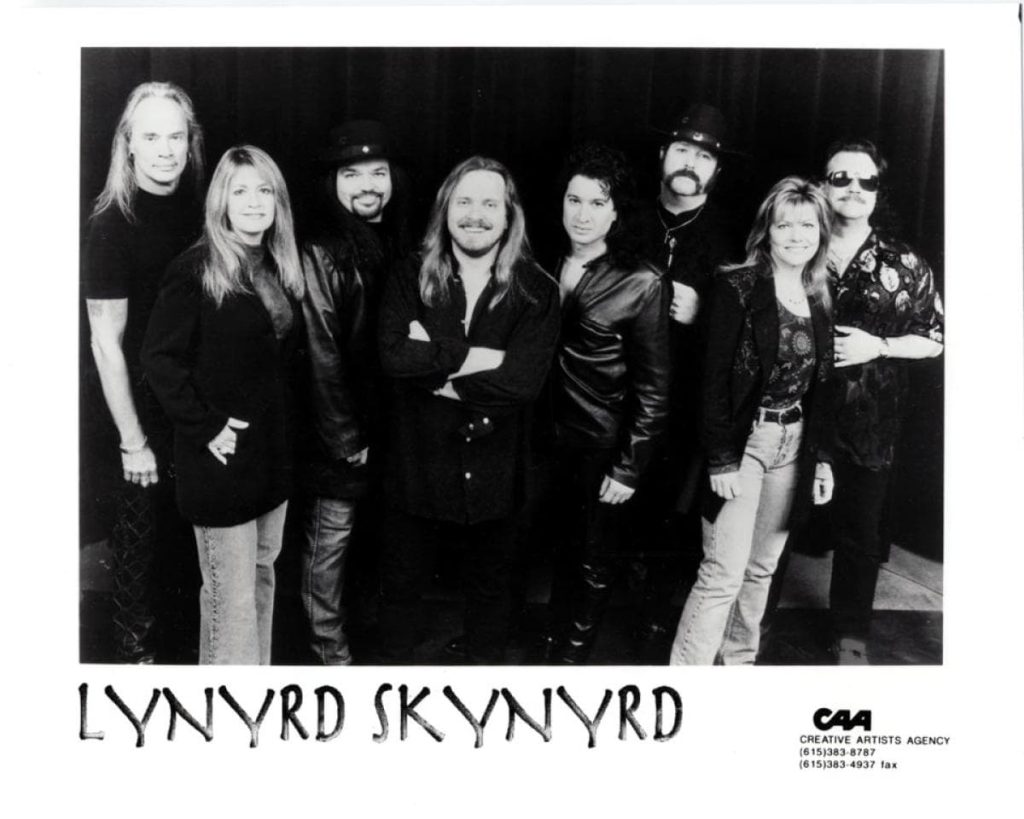
“Tuesday’s Gone”: Lynyrd Skynyrd’s Haunting Farewell to Lost Love and Time
Released in 1973 on their debut album, Pronounced ‘Lĕh-‘nérd ‘Skin-‘nérd, “Tuesday’s Gone” quickly became one of Lynyrd Skynyrd’s most beloved ballads. While the band is often associated with harder-edged Southern rock anthems like “Free Bird” and “Sweet Home Alabama,” “Tuesday’s Gone” showcases their ability to create something more tender and reflective. With its slow tempo, wistful lyrics, and extended instrumental passages, the song evokes a profound sense of loss, longing, and acceptance.
“Tuesday’s Gone” is a departure from the rebellious energy that Skynyrd would later become known for, capturing a quieter moment of reflection. The track is a mournful goodbye to both a lost love and the passage of time, and it reveals the band’s depth and versatility. Its emotional resonance lies in the universal experience of moving on, leaving behind someone or something dear, and making peace with the inevitability of change. This song offers a gentle reminder that, sometimes, all we can do is let go and allow life to carry us forward, even if it means saying goodbye to things we wish could stay.
The lyrics of “Tuesday’s Gone” tell a simple but poignant story of someone leaving town, weighed down by heartache:
“Tuesday’s gone with the wind / My baby’s gone with the wind.”
Here, Tuesday functions both literally—marking a specific day—and metaphorically, representing a moment or relationship that has slipped away, as fleeting and uncontrollable as the wind. The repetitive imagery of the wind suggests the inevitability of loss, a force of nature we cannot resist. The song’s narrator reflects on the departure with both sorrow and resignation, recognizing that clinging to what’s gone is futile. The theme of goodbyes—whether to a person, a phase of life, or a cherished memory—makes the song universally relatable.
Though the lyrics are sparse, they convey an immense emotional weight. Skynyrd’s ability to say so much with so few words is a testament to the band’s songwriting craft, particularly that of Ronnie Van Zant, whose understated lyricism gives the song its timeless quality.
Musically, “Tuesday’s Gone” stands out for its relaxed, almost meditative atmosphere. It begins with a gentle guitar riff, played by Gary Rossington, whose slide guitar work adds a soulful, melancholic feel. The song’s slow, deliberate pace gives listeners space to sit with their emotions, letting each note and lyric linger. Over time, the arrangement builds with the addition of piano, strings, and a soaring guitar solo that conveys a yearning that words alone cannot express.
The inclusion of piano, played by Al Kooper, gives the song a lush, orchestral feel that contrasts with the band’s more stripped-down Southern rock sound. Kooper’s contribution to this track—and the rest of the album—was crucial in shaping the sonic identity of Lynyrd Skynyrd. His subtle yet expressive playing adds depth to the song, making it feel more like a lament or elegy than a standard rock ballad.
What makes “Tuesday’s Gone” especially memorable is the way the band uses space and dynamics. The song ebbs and flows, with quiet verses that swell into grand instrumental sections. The extended outro, where the guitars and piano intertwine in a gentle crescendo, feels like the musical embodiment of time slipping away.
Although “Tuesday’s Gone” didn’t chart as a single, it has become one of Lynyrd Skynyrd’s signature songs, beloved by fans and frequently performed in live shows. It offers a different side of the band—one that’s more introspective and emotionally nuanced than the swagger of their radio hits. Over the years, the song has found new audiences, appearing in several films and TV shows, including an iconic scene in Happy Gilmore, where it perfectly underscored the bittersweet nature of moving on.
The song also holds a special place within the Southern rock canon, embodying the genre’s ability to blend rock with elements of country and folk while addressing universal themes of life, love, and loss. Its slower tempo and reflective tone have made it a fan favorite during live performances, where it serves as a moment of quiet introspection amidst the high-energy rockers.
Beyond its place in the band’s catalog, “Tuesday’s Gone” stands as a testament to the versatility of Lynyrd Skynyrd. It shows that the band was capable of more than just fiery guitar riffs and anthemic choruses—they could also create music that spoke directly to the heart, music that invited listeners to sit with their emotions and reflect on the things they’ve lost.
More than five decades after its release, “Tuesday’s Gone” continues to resonate with listeners. Its themes of loss, change, and acceptance are as relevant today as they were in 1973. The song’s beauty lies in its simplicity—it doesn’t offer easy answers or dramatic resolutions but instead captures the quiet, persistent ache of saying goodbye and moving forward.
For many, “Tuesday’s Gone” represents a moment of personal reflection, a song to turn to in times of change or heartache. Whether it’s the end of a relationship, the passing of a loved one, or simply the bittersweet passage of time, this song provides a soundtrack for those moments when words fail, and all that remains is the quiet pull of memory and hope for what lies ahead.
In the grand scope of Lynyrd Skynyrd’s legacy, “Tuesday’s Gone” may not be the loudest or most celebrated song, but it holds a special place in the hearts of those who cherish it. Its timeless message, delivered with grace and sincerity, ensures that it will remain a beloved classic for generations to come.